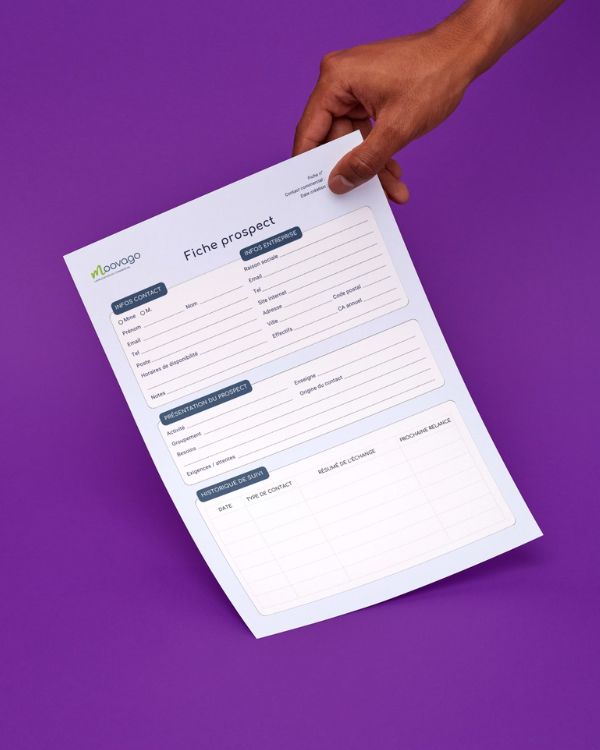Definition of a potential customer
A potential customer is a person or organization who could eventually buy your products or services. They have a probable interest, but have not yet made a purchase. He’s not a customer (yet).
This term is often used as a synonym for prospect, but it remains broad and sometimes vague.
In fact, a potential customer can mean :
-
someone who already knows your company and is thinking of buying,
-
or someone who simply shares characteristics with your current customers (same sector, same issues, same socio-demographic profile).
That’s why marketing and sales professionals prefer to use more precise terms, such as lead, suspect and prospect, to qualify the degree of maturity of a contact.
During each phase of the potential customer’s familiarization with the company, he or she can evolve in the company’s eyes, so that it approaches him or her at the ideal moment.
As soon as a potential customer makes a first purchase, his status changes: he becomes a customer.
Types of potential customers
There are two main categories of potential customers:
The “cold” potential customer: corresponds to your target, but has not yet expressed any particular interest. Example: a company entering your market, but not yet familiar with you.
The “hot” potential customer: has already shown signs of interest (contacting us, downloading a brochure, attending a webinar, etc.). This profile is often ready to move towards a purchasing decision.

Download our ready-to-fill form
for your potential customers!
Our prospect sheet helps you collect and organize key information about your potential customers: sector, segmentation and interactions. Simplify your day-to-day sales follow-up.
Who are your potential customers?
Not everyone can be a potential customer. To be one, a person must meet certain criteria:
have an identified or latent need that your product/service can solve,
have a budget adapted to your offer,
belong to your prospecting zone (geographical or sectoral),
be in a favorable context (timing, urgency, active search for a solution).
🔎 Case in point:
For a wine and spirits supplier, potential customers are restaurateurs or wine merchants who have already tasted the products at a tasting and are considering placing an order.
For a medical equipment manufacturer, potential customers are clinics that have expressed a specific need for equipment and have budgeted for the purchase.
For a farm machinery salesman, potential customers are farmers who have expressed an interest in a specific model for the coming season.
Why identify potential customers?
Identifying potential customers is a key step in :
target your sales actions on the most relevant contacts,
tailor your communication to their specific needs,
optimize your marketing efforts and avoid wasting time on unqualified profiles,
maximize your chances of converting real customers.
💡 One effective method is to analyze your existing customers: why did they choose you? What problems have you solved for them? These answers will help you define a typical profile and better identify your potential future customers.
A potential customer is therefore a person or company who could become a customer, but hasn’t yet taken the plunge.
The challenge for your company is not only to identify them, but also to qualify them and accompany them through to purchase.
